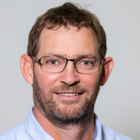Israel-Palestine conflict
Germany should host an international donor conference to plan for the aftermath
Furness, Mark / Tina ZintlThe Current Column (2023)
Bonn: German Institute of Development and Sustainability (IDOS), The Current Column of 26 October 2023
The terrible war which started when Hamas murdered and abducted Israeli civilians on 7 October 2023 will not resolve anything in the long-running Israeli-Palestinian conflict, as it merely deepens the rift between the opposing camps. The political reality of the occupation of Palestinian territories and the Israeli government’s interference with everyday Palestinian politics remain set in stone, as long as Israel refuses to respect long-standing international agreements on Palestinian rights. On the Palestinian side, the weak and corrupt Palestinian Authority has little legitimacy to represent the interests of the Palestinian people. Hamas is a death cult, whose cruel actions on 7 October were taken in full knowledge of Israel’s inevitable response and the consequences for Palestinian civilians. Hamas’ terrorist attacks and Israel’s retaliation are further entrenching the ‘us-versus-them’ deadlock, also internationally where Israeli-Arab normalization has been underway since 2020.
International development donors need to start thinking about how they can break the vicious cycle of polarization and support ordinary Palestinians in the future. To both these ends, an international donor conference needs to take place as soon as possible, bringing together the European Union and its members, the United States, the multilaterals and the Arabian Gulf donors. A development path for the next months and years could provide some hope for Palestinians, Israelis and their neighbours in the Middle East.
To forestall the radicalisation of the next generation of uprooted Palestinians, decisions need to be taken regarding three dimensions of international support to the Palestinian people: humanitarian aid, technical assistance through aid grants, and longer-term investment partnerships.
With respect to humanitarian aid, the destruction wrought by Israel’s military response is causing a humanitarian catastrophe in Gaza, which will create a lasting need for basic assistance. The UN organisations operating in Palestine have lacked adequate resources for years, and will need both finance and implementation capacity on the ground to deliver their mandates. Local and international NGOs need resources and protection so that humanitarian aid can reach those in need without inadvertently strengthening terrorist groups.
Technical development grants are usually delivered via government-to-government agreements. These set joint priorities and facilitate contracts for development programmes and projects. This has not been possible in Palestine. Instead, and in order to avoid channelling money via the Hamas administration, technical assistance to Gaza has long been delivered through international implementation agencies, such as Germany’s GIZ, or NGOs. In the West Bank, international donors have supported the Palestinian Authority’s capacity to govern, with mixed results. These programmes need to be reviewed and potentially redesigned in order to improve their effectiveness, especially with regard to strengthening Palestinian counterweights to Hamas. Opportunities for multi-donor programmes and projects co-financed and implemented with Gulf donors need to be taken up where appropriate.
Investment partnerships that include Palestine have perhaps the greatest potential to bring socio-economic benefits for Palestinians and perhaps even to incentivise pathways out of the deadlocked conflict cycle. It is likely that the Abraham accords normalising Israeli-Arab relations, and especially the potential agreement between Israel and Saudi Arabia, influenced the timing of Hamas’ decision to attack Israel. Linked to improved Israel-Gulf relations is the plan to build an economic corridor from India via the Gulf and the Middle East to Europe, which would isolate Palestine both economically and geopolitically. Infrastructure partnerships to build ‘connectivity’ are currently the talk of the town in Brussels in the context of the EU’s ‘Global Gateway’ strategy. Given both the potential for connecting and embedding Palestinians in global value chains, and the danger inherent in prolonging their exclusion, any long-term development strategy for Palestine has to include investment partnerships, ideally with the participation of Gulf governments and development banks.
Germany’s legitimacy in the Arab world has arguably suffered since 7 October, due to the perception that the government has lent uncritical support to Israel. To counteract this, Berlin could take a leading role in supporting Palestine’s development. The German government has organised and hosted donor conferences for other conflict-affected countries, including for Libya in 2020 and 2021. Germany could propose a similar event for Palestine. As the Libya conferences showed, such events cannot resolve conflicts on their own. Nevertheless, a donor conference may help Palestinians, Israelis and their neighbours think about a future defined by cooperation rather than conflict, and potential routes out of the deadlock that condemns them.



